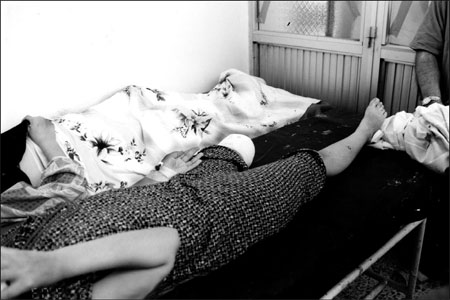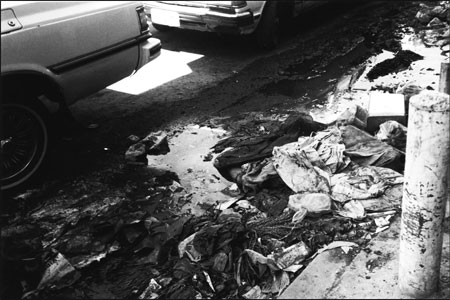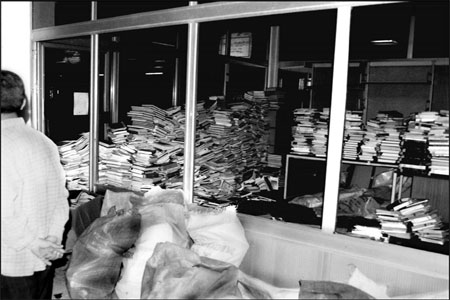
Post War Iraq
Issue 100
US policing capability in Baghdad and other areas has been unable to ensure law and order. Most troops are in logistical roles. Only 12,000 troops patrol a city of about six million people.
Public services are in chaos. In Baghdad the Ministry of Education was just one of many buildings looted or burned. The former telephone exchange has been burned and repeatedly ransacked. Electricity is erratic, rubbish is piling up, many shops are still shuttered, sanitation generally is poor, and the provision of public services is irregular.
Rising gang warfare and banditry has become rife. The Saddam government made it a policy to widely distribute firearms to its population.
Thousands more weapons were looted after the collapse of the regime, or can today be bought for less than $80. These weapons have been used in hijackings and robberies.The US 82nd Airborne Division's shooting dead of 14 people during a demonstration in Falluja, west of Baghdad, and a further two shootings 48 hours later in late April only worsened the tense situation across the country. This led to reprisals aimed at US soldiers in the form of grenade attacks.

International health organisations have warned of a total collapse in the Iraqi health service due to looting and lack of equipment. Simply moving supplies into the country is difficult due to the chaotic situation in Iraq as a whole. Aid convoys trickling into the capital are being hijacked.
The country faces serious health and environmental damage. Southern Iraq in particular faces a mass cholera outbreak according to the World Health Organisation (WHO) due to a lack of clean drinking water. Multiple cases are already reported in Basra. WHO officials report lack of vital drugs and fluids, compounded by poor security which has made hospital access for victims more difficult.
Coalition munitions continue to present a grave threat to Iraqi civilians. The baking heat, has made the chance of detonating the explosives much higher. UN officials reported that nine Iraqi children died in the second week of May in this way.
The failure to provide adequate security ensured the loss of much of Iraq's unique historical artefacts. The world's first written words, which are over 5,000 years old, in the form of distinctive clay tablets from Ur, have either been destroyed or stolen during looting of the Iraqi national museum.
Estimates are that some 170,000 items have been taken from Baghdad's National Museum of Antiquities.
Attempts to get Iraqis back into their jobs are faltering at best. In the capital many of the 50,000 members of the pre-war force have not returned to work, many fear of being attacked by people who associate them with Saddam's regime.

Iraqi agriculture could also face collapse, the UN's Food and Agriculture Organisation has warned in recent reports. Government warehouses that would have served as the main suppliers of seeds, fertilisers and pesticide sprays have been looted, particularly in the centre and south of the country. The pumping stations that powered the irrigation schemes are ruined. In the southern and central areas irrigation networks have been destroyed, equipment is without spare parts, a once thriving poultry industry is destroyed and there are predictions of disease and pestilence among both plants and animals.
Owen VanSpall has recently completed research into war studies at King's College, London.
Bookmark this |
|
Add to DIGG |
|
Add to del.icio.us |
|
Stumble this |
|
Share on Facebook |
|
Share this |
|
Send to a Friend |
|
Link to this |
|
Printer Friendly |
|
Print in plain text |
|

Comments
0 Comments